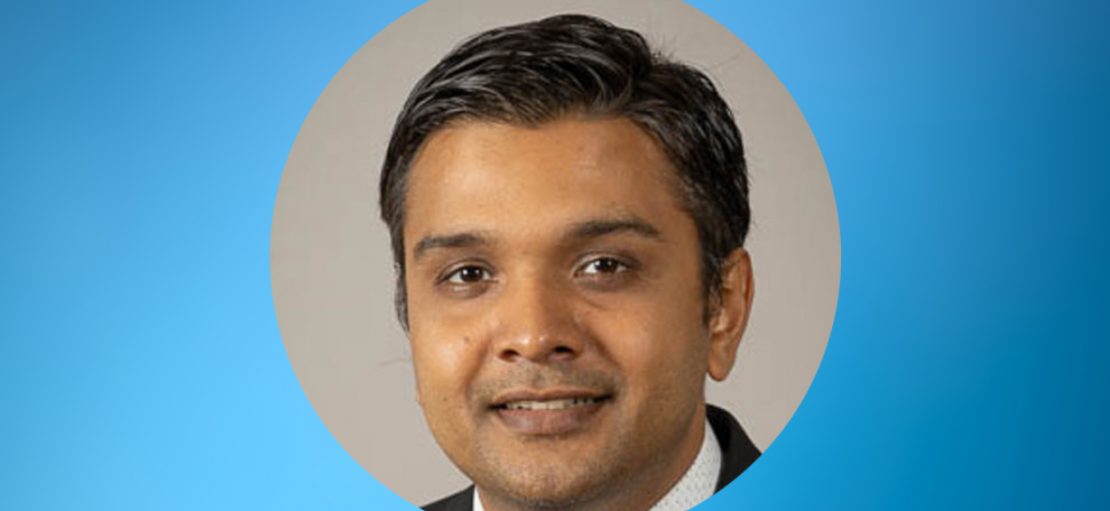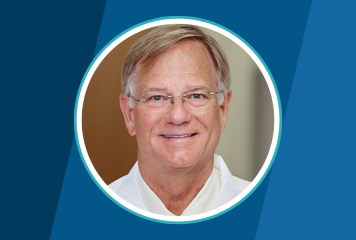Raghav Tirupathi, MD, is the Medical Director of Keystone Infectious Diseases/HIV and Keystone Community Health Services. He also serves as the Chair of the Infection Prevention Committees of both WellSpan Chambersburg Hospital and WellSpan Waynesboro Hospital. He has a teaching appointment at the Drexel College of Medicine as Clinical Assistant Professor of Medicine. He serves as the clinical consultant at CURE ID/CURE Drug Repurposing Collaboratory, a joint initiative of the Food and Drug Administration and the National Institutes of Health. Dr. Tirupathi joined the ABIM Infectious Disease Board in July 2024.
Can you share your journey to becoming a physician and infectious disease specialist? What inspired you to join this field? What are some of the key milestones that led to where you are now?
I’m a first-generation immigrant from India, and as a physician specializing in infectious diseases, my journey was definitely shaped by my early experiences back home. From the beginning of my medical training, I have been captivated by the complexities and challenges of infectious disease medicine. My passion was fueled by a desire to understand and combat diseases that have a significant impact on public health or global health.
I trained in Camden, New Jersey, which is a pretty tough neighborhood to practice in in terms of the type of pathology you see in infectious disease. This helped me to learn the specialty, collaborate with mentors and experts and develop a nuanced understanding of both common and emerging infectious diseases. And there have been several emerging infectious diseases through the last ten years, like Zika, COVID monkeypox. There is no dearth of difficult situations in ID and that’s what makes it challenging and exciting at the same time.
The next milestone was choosing to work at a Federally Qualified Health Center in rural Pennsylvania. This was a significant shift from my previous experiences. Most of my training was in urban settings. Hence the pivot to practice in a rural setting was eye-opening for me. It exposed me to the unique difficulties and challenges inherent to rural medical practice. These are underserved, underinsured areas, with access to specialized infectious disease care often inconsistent at best, limited or even nonexistent at the worst. The lack of resources posed significant barriers to effective patient management and treatment. We set up a practice in a county in 2012 when there was no consistent care. Up until 2015, there was no STI testing and people had to travel 100 miles for a STI test. This experience underscored the importance of resourceful care and reinforced my commitment to addressing healthcare needs in underserved population.
What made you interested in the Infectious Disease Board? What voice or perspective are you most hoping to contribute?
As a community physician, I have felt for a long time that the voice of those working outside academic and tertiary centers were underrepresented and not appreciated by the governing bodies that shape our field. This sense of disconnect motivated me to seek a position where I could actively contribute to the evolution of our specialty and ensure that the diverse experiences of community-based practitioners are heard, recognized and addressed. When I engaged more with the Infectious Disease Board, I was pleasantly surprised to discover many members came from community practice backgrounds, which reassured me that there was genuine interest in understanding and addressing the unique challenges of rural physicians.
It’s clear to me that the Specialty Board and ABIM place a high value on having a broad range of perspectives from practitioners in nonacademic and underserved settings. Rural physicians face distinctive challenges such as limited access to resources, fewer opportunities for continuing medical education (CME) or professional development and, even if we have opportunities, limited time to attend these sessions and significant barriers to specialized care. I want to bring attention to all of these challenges to the Specialty Board and bring a diverse opinion to the table.
How has board certification influenced your career and your approach to patient care?
I am dual certified and I think it has profoundly influenced my career and my approach to care. It validates my expertise and improves my confidence in managing complex infections. Working in health care is very humbling, we’re humbled by something new every day. You might think you know everything but there’s always a situation where you are stumped. The assessment helps you prepare for such situations and contributes to your ability to deliver the best standards of care to your patients. I have integrated what I have learned in preparing for the board into my patient care and my patients have benefited significantly from that over the years. It has also made me a good teacher to my students.
Maintenance of Certification (MOC) provides opportunities to learn about the latest advances in the field, work with other specialists and stay informed about new treatments and guidelines. It’s a win-win for us. It’s not just about a credential; it’s about your commitment to ongoing learning and delivering the best care.
The field of infectious diseases is evolving rapidly, and also critically understaffed. What do you think is the best path forward to ensure there are enough ID specialists in the future, and what can fellow physicians do to help?
I think ID physicians have become a rare breed, especially after COVID—the attrition rate is high. According to pre-pandemic data, there was only one active ID physician for every 34,000 persons in the U.S. Eighty percent of U.S. counties do not have an ID specialist. We could go on about the reasons, but these statistics are startling and cannot be denied. There is also growing evidence that interventions by ID physicians are linked to lower mortality rates and overall better cost-effective outcomes in several infectious diseases. The fact that ID physicians save lives, shorten hospital stays and lower health care spending is undeniable. The disparity is more startling in rural areas, where there is no access to an infectious disease specialist in many counties, some of them in my neighboring counties in Pennsylvania. This leaves them less unprotected against threats like COVID and allows diseases to spread more easily.
One factor that cannot be ignored is compensation. ID physicians are the lowest paid according to multiple surveys. Improving compensation requires roadblocks to be removed by policy makers, payers and insurers. Right now, the Workforce Pilot Program is preparing an act for Congress which could be one of the ways to improve retention in ID.
Burnout, too, is a problem across health care, but in ID, we’re facing a lot of burnout and it needs to be addressed in a multidisciplinary fashion.
As an educator, what are the most important lessons you try to instill in your students?
One of the things I tell everyone is that medicine is lifelong learning—it constantly evolves and you have to stay up to date with latest research and advances. One thing that’s constant is change, and you have to have a mindset of curiosity and responsiveness to change. Critical thinking and problem-solving skills are important, being mindful and actionable is vital. As a physician and as an infectious disease/HIV physician, compassion and empathy are very important skills to have. Listening, being holistic in your care is something that’s highly valued in our field. I always stress the importance of empathy, being a team player and having interdisciplinary collaboration as health care has become a team sport.
What do you most want diplomates to know about you and what you bring to the Specialty Board?
As a new member of the Infectious Disease Board, I want to ensure that the voices of community-based infectious disease doctors in private practice and rural settings are heard: their concerns, their challenges with respect to providing care and their concerns about professional development. I would encourage people to reach out to me and talk to me about their concerns, especially with respect for how we can ensure that certification remains meaningful and beneficial better for them. I am all ears.



